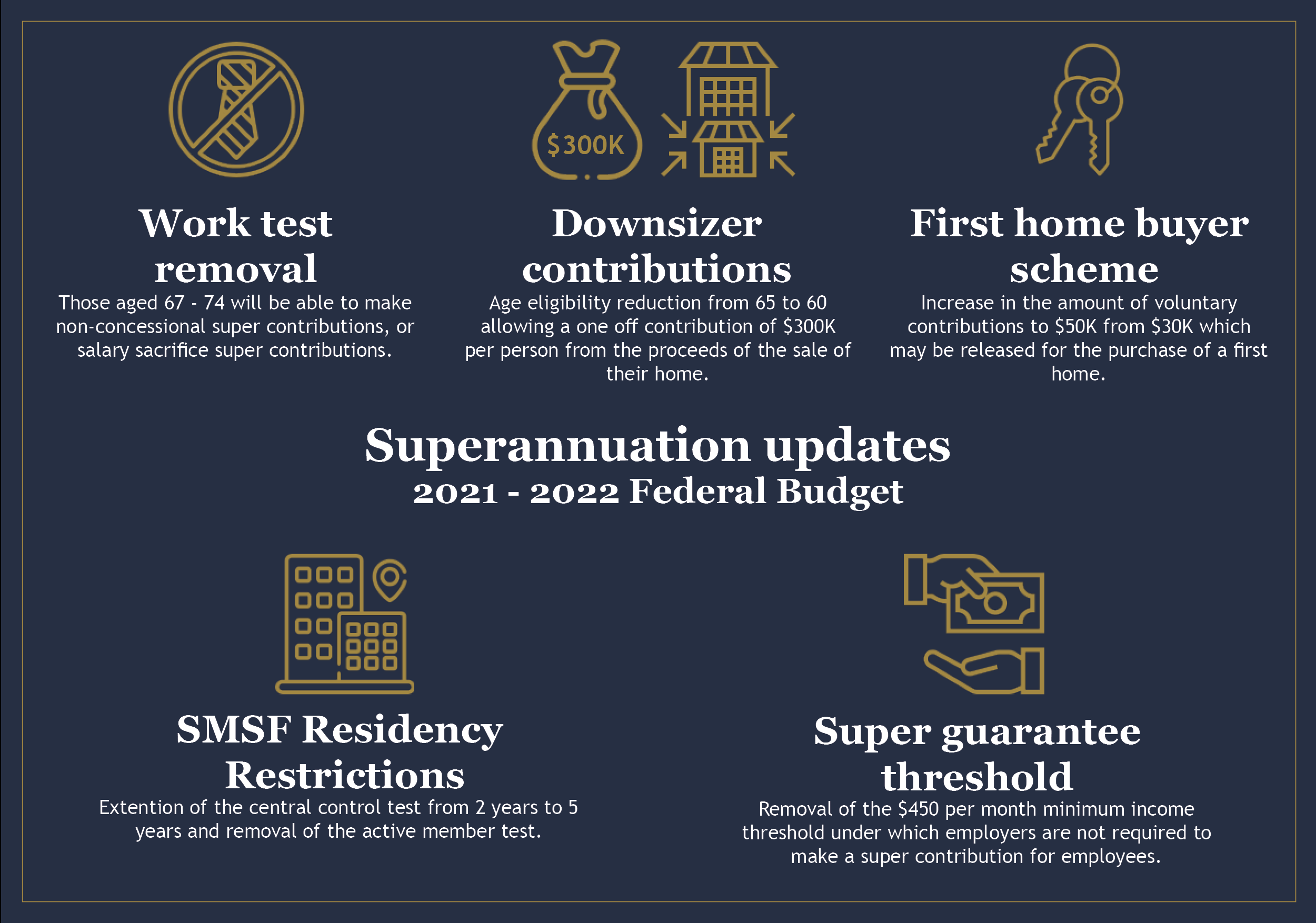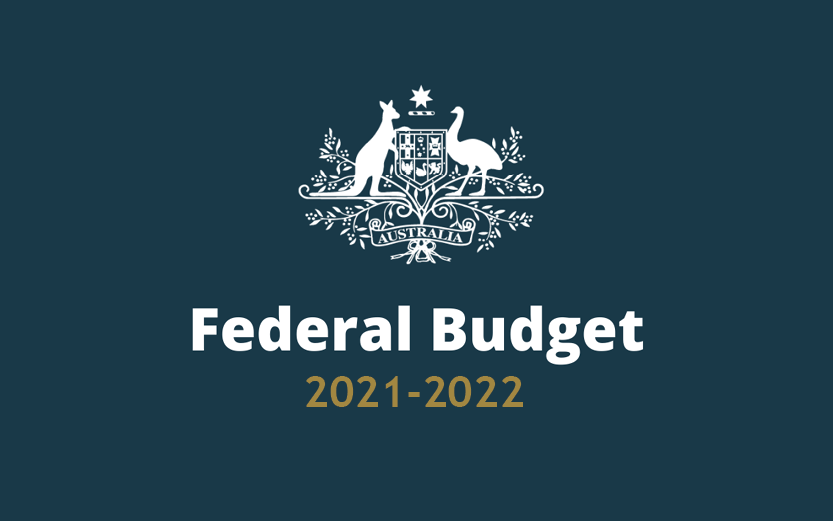As Scott Morrison kept reminding us this morning, ‘we are fighting the pandemic’ and so the Federal Budget focuses on key spending to drive Australia’s economic recovery.
This is a Budget promoting economic growth and employment. While you will have those who continue to have major concerns over government debt and the continued spending, could it be that we are seeing a ‘new’ way of thinking when it comes to debt? My colleague, James Weir, wrote a paper explaining this with Modern Monetary Theory (“MMT”), suggesting maybe the focus on debt is unwarranted?
So here are the simply the main features of the 2021-2022 Budget;
Personal Income Tax
Low and middle income tax offset
This will be extended to 2021-2022 providing a reduction in tax of up to $1,080 to low and middle income earners.
Superannuation

Removing the work test
This is actually a significant change. Individuals aged 67 to 74 years will be able to make non-concessional super contributions, or salary sacrifice super contributions without meeting the work test.
However, in order to make personal deductible contributions, you will still need to meet the work test.
Downsizer contributions
The charges announced in the Budget from that article include reducing the eligibility age for 65 to 60 years of age. This scheme allows a one-off contribution of $300,000 per person from the proceeds of the sale of their home.
To learn more about downsizer contributions and how it can work for you check out my blog here.
SMSF residency restrictions
From 1 July 2022, the Government will extend the central control test from 2 years to 5 years and remove the active member test.
Super guarantee threshold
The $450 per month minimum income threshold under which employers are not required to make a super contribution for employees will be removed 1 July 2022.
First Home Buyer Scheme (FHBS)
From 1 July 2022, the Government will increase the amount of voluntary contributions to $50,000 which may be released for the purchase of a first home.
Family Support
Family Home Guarantee
The Government has introduced the Family Home Guarantee to support single parents with dependants buying a home. This is regardless of whether they are a first home buyer or a previous owner-occupier. From 1 July 2021, 10,000 guarantees will be made available over four years to eligible single parents with a deposit of as little as 2%, subject to an individual’s ability to service a loan.
The Government is also providing a further 10,000 places under the New Home Guarantee in 2021/22. This is specifically for first home buyers seeking to build a new home or purchase a newly built home with a deposit of as little as 5%.
Increasing childcare subsidy (CCS)
To ease the cost of childcare and encourage a return to the workforce, from 1 July 2022 the Government proposes to provide a higher level of CCS to families with more than one child under age 6 in childcare. The level of subsidy will increase by an extra 30% to a maximum subsidy of 95% for the second and subsequent children. For example, currently a family may receive a 50% subsidy on childcare costs for each child if family income is between $174,390 and $253,680. Under the proposal, the family would receive a CCS of 50% of costs for their first child and 80% for their second and subsequent children. The annual CCS cap of $10,560 for families earning between $189,390 and $353,660 will also be removed.
Social Security
Pension Loan Scheme
The Government has announced added flexibility by allowing up to two lump sum advances in any 12 month period up to 50% of the annual pension.
The Government will also not claim back any more than the sale price of the house used to guarantee the payment.
Aged Care
The Government has announced a $17.7b investment in aged care reform over the next 5 years which will cover:
- Additional Home Care Packages
- Greater access to respite care services
- A new funding model for residential aged care
- A new Refundable Accommodation Deposit (RAD) support loan program.
Business Support
COVID Package
The Government will extend until 30 June 2023 the instant write-off of depreciable assets as well as the ability for qualifying companies to claim back tax paid in prior years from 2018-2019 where tax losses occur until the end of the 2022-2023 financial year.





